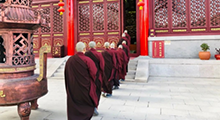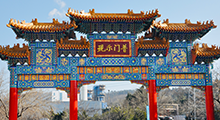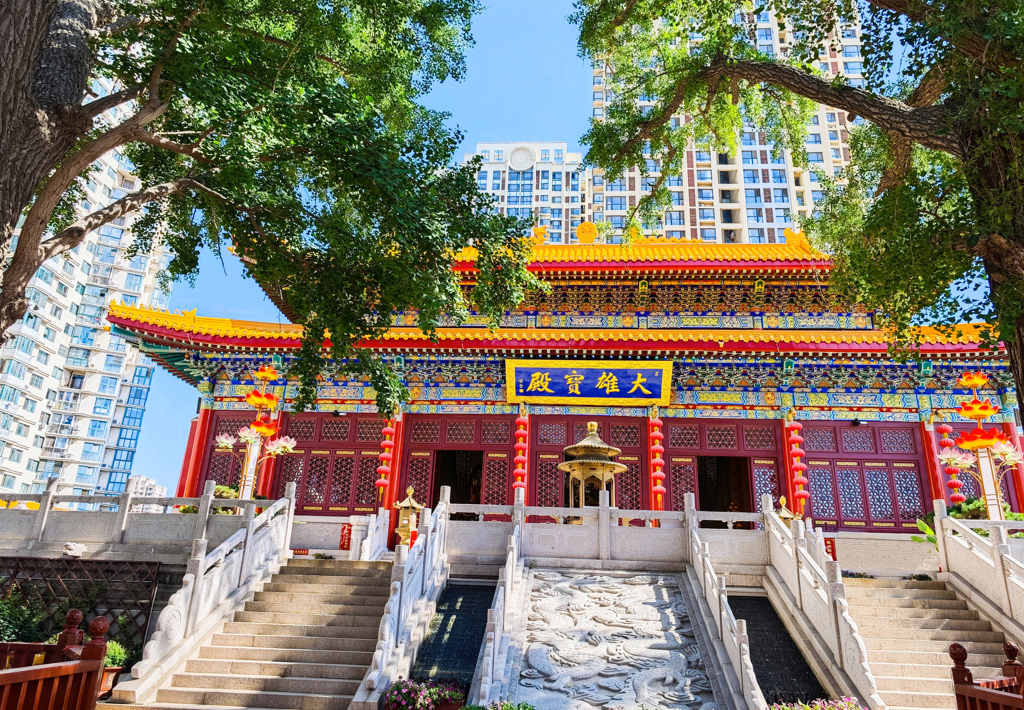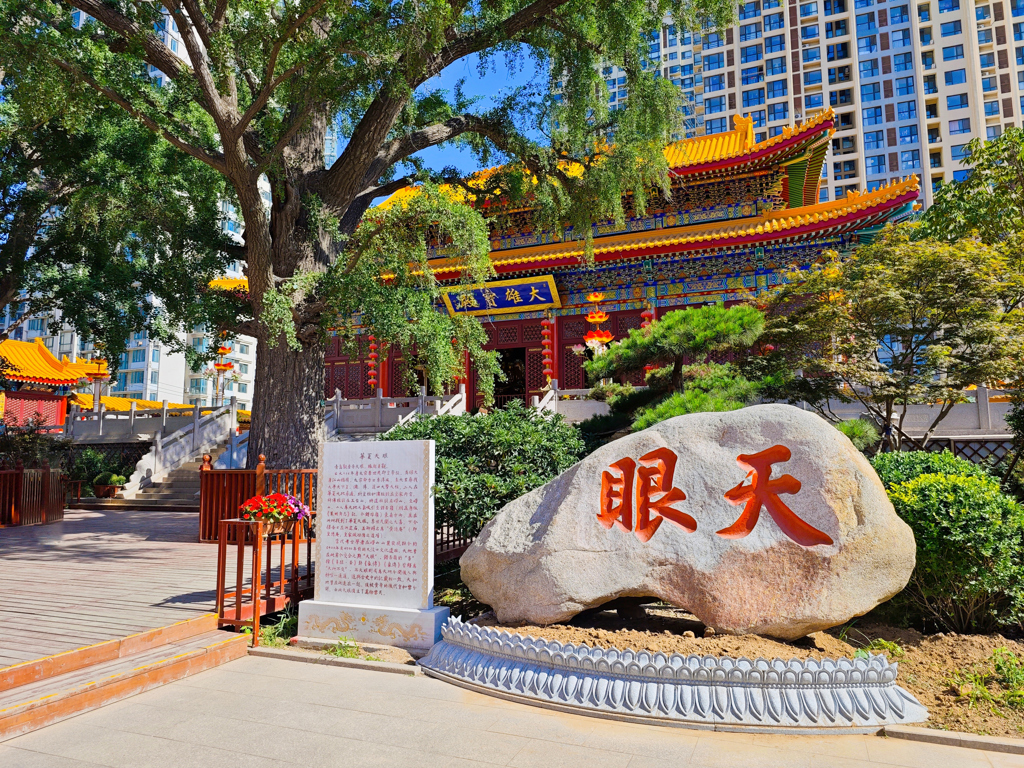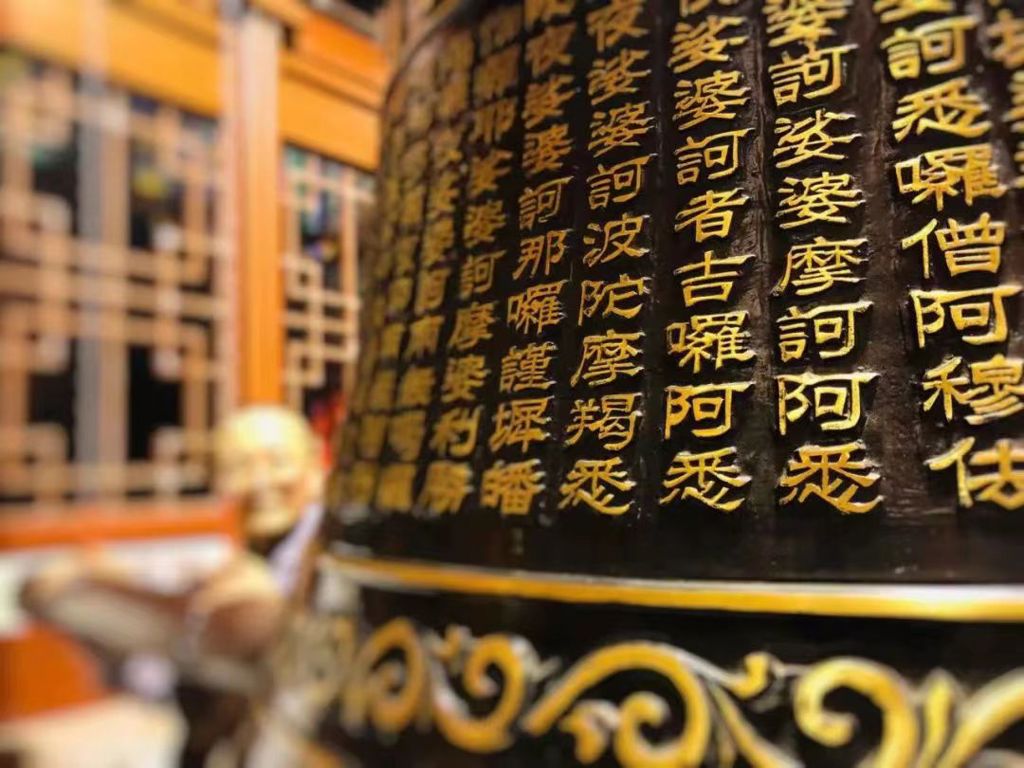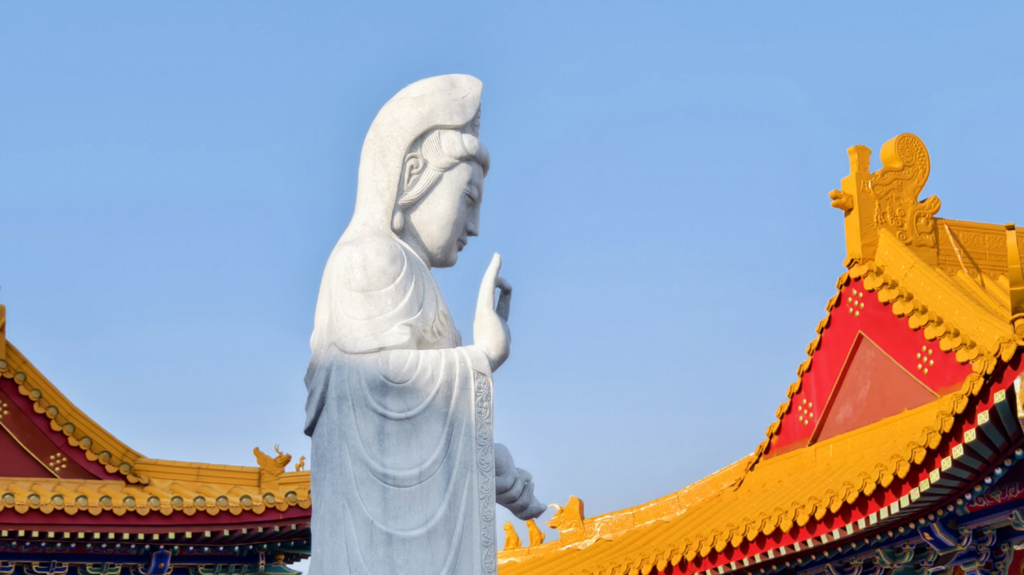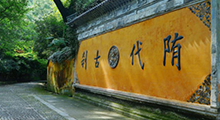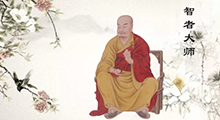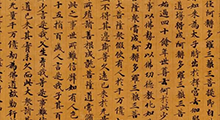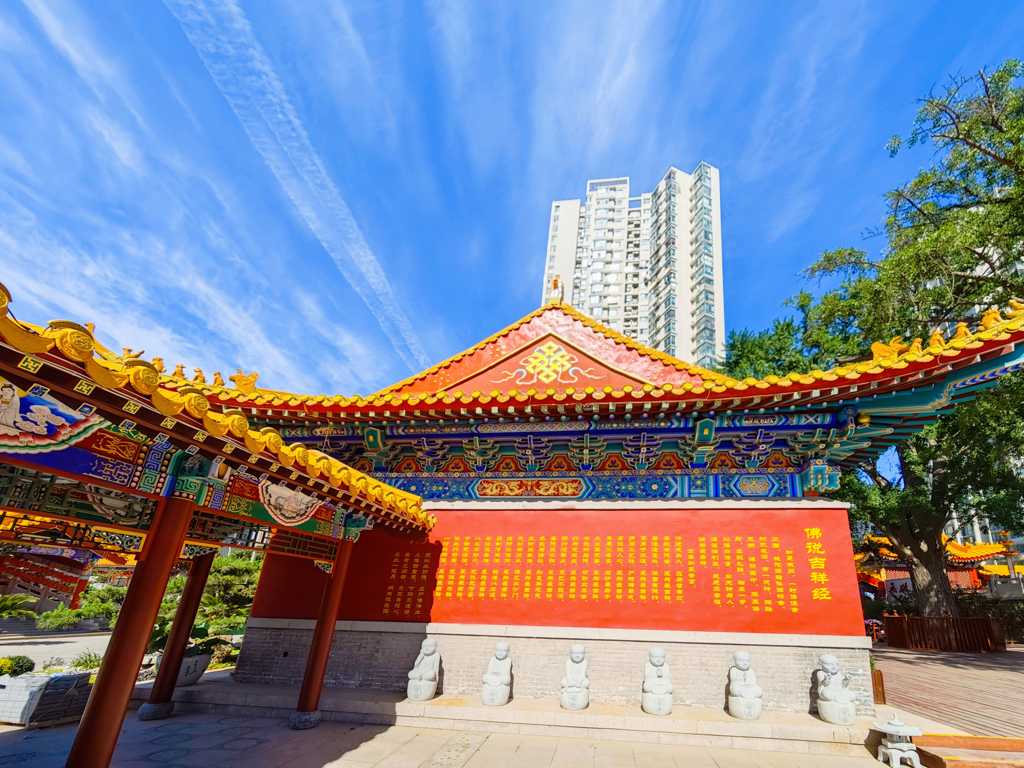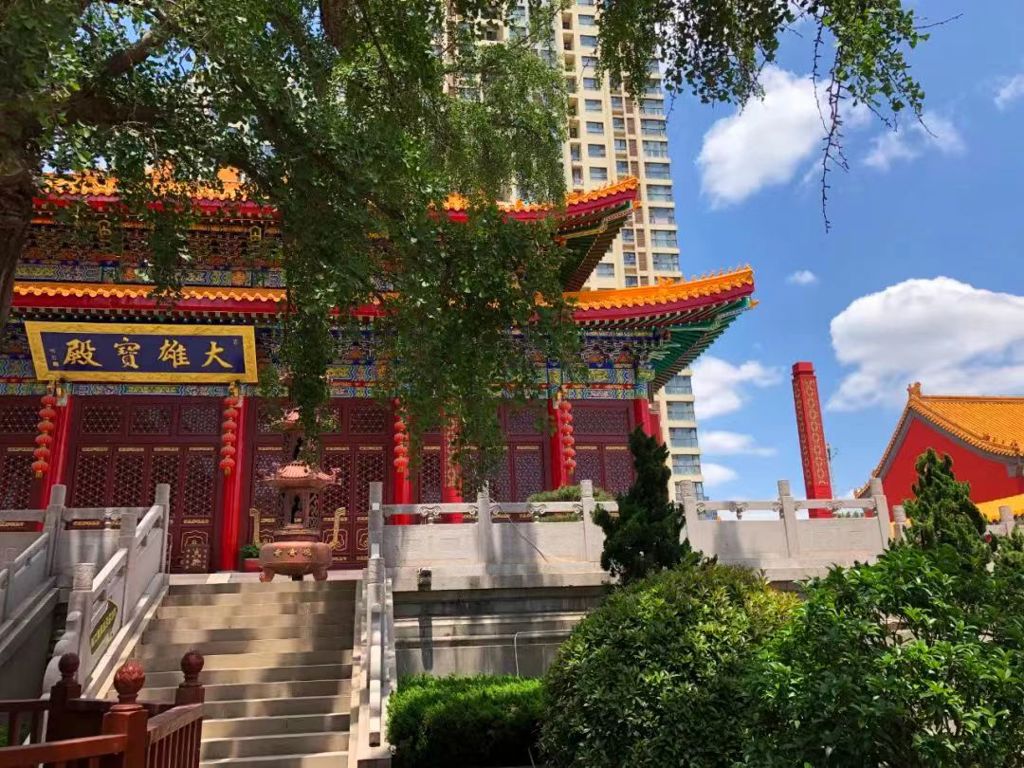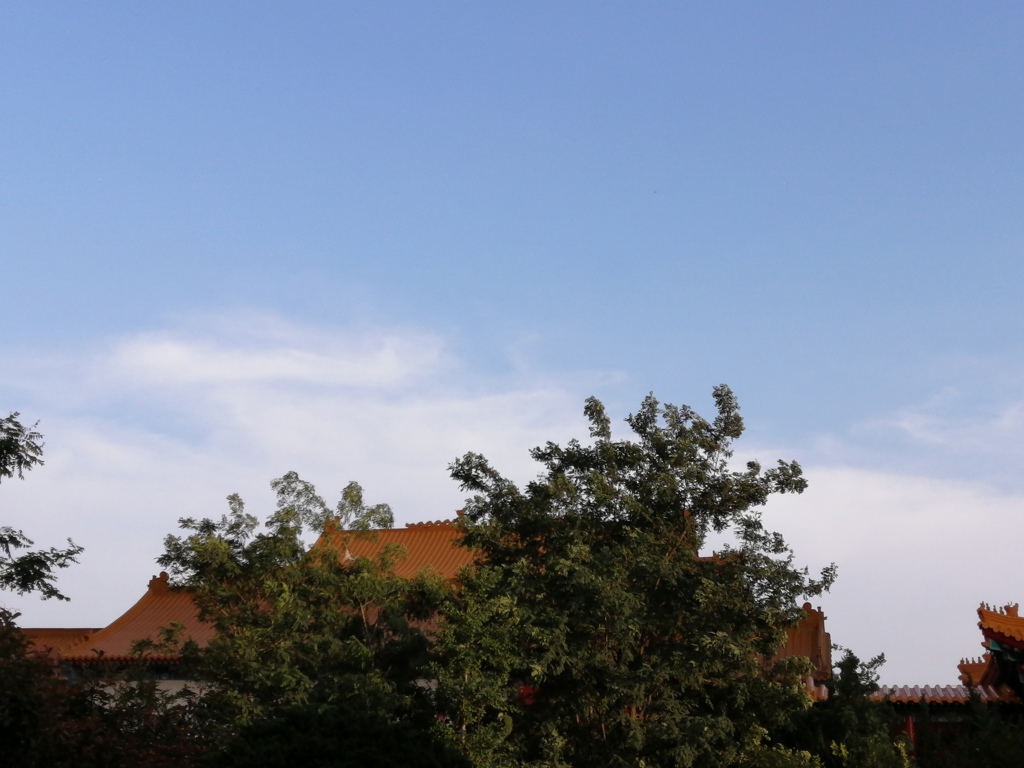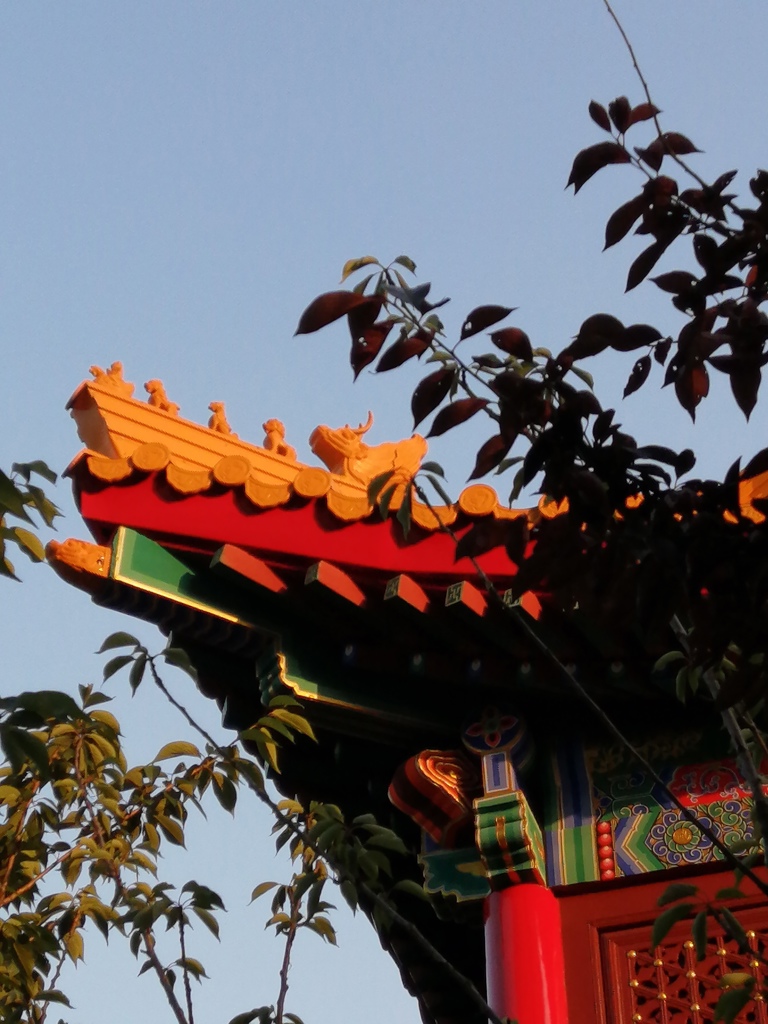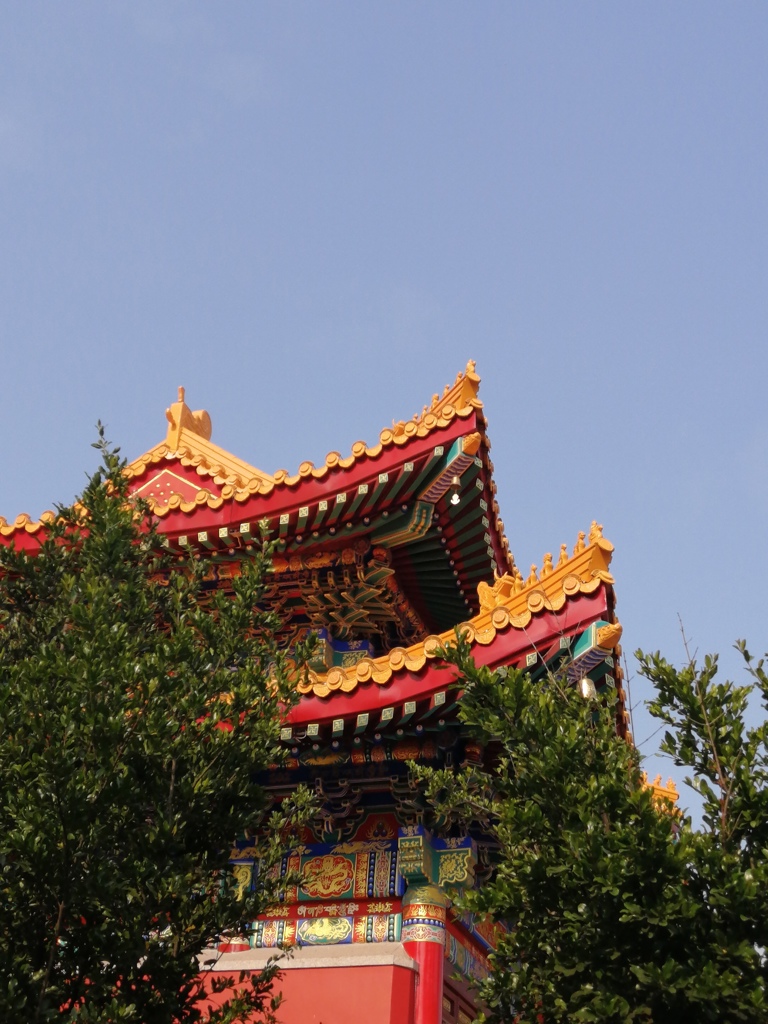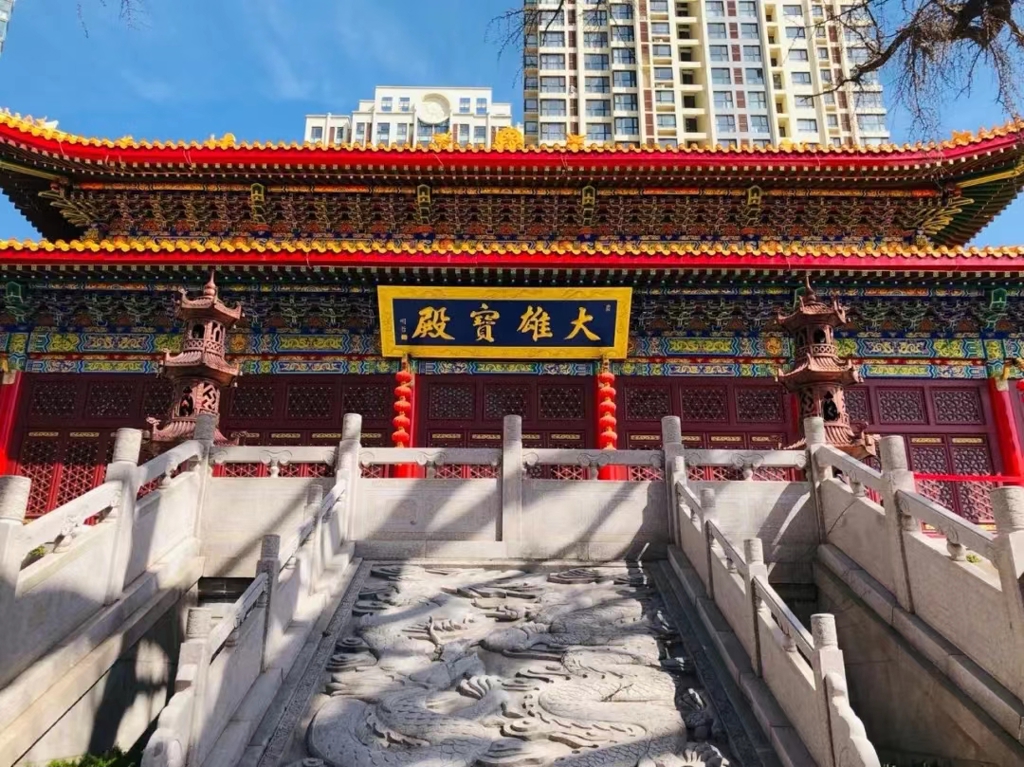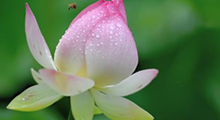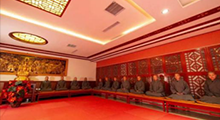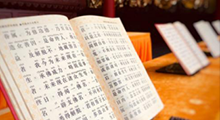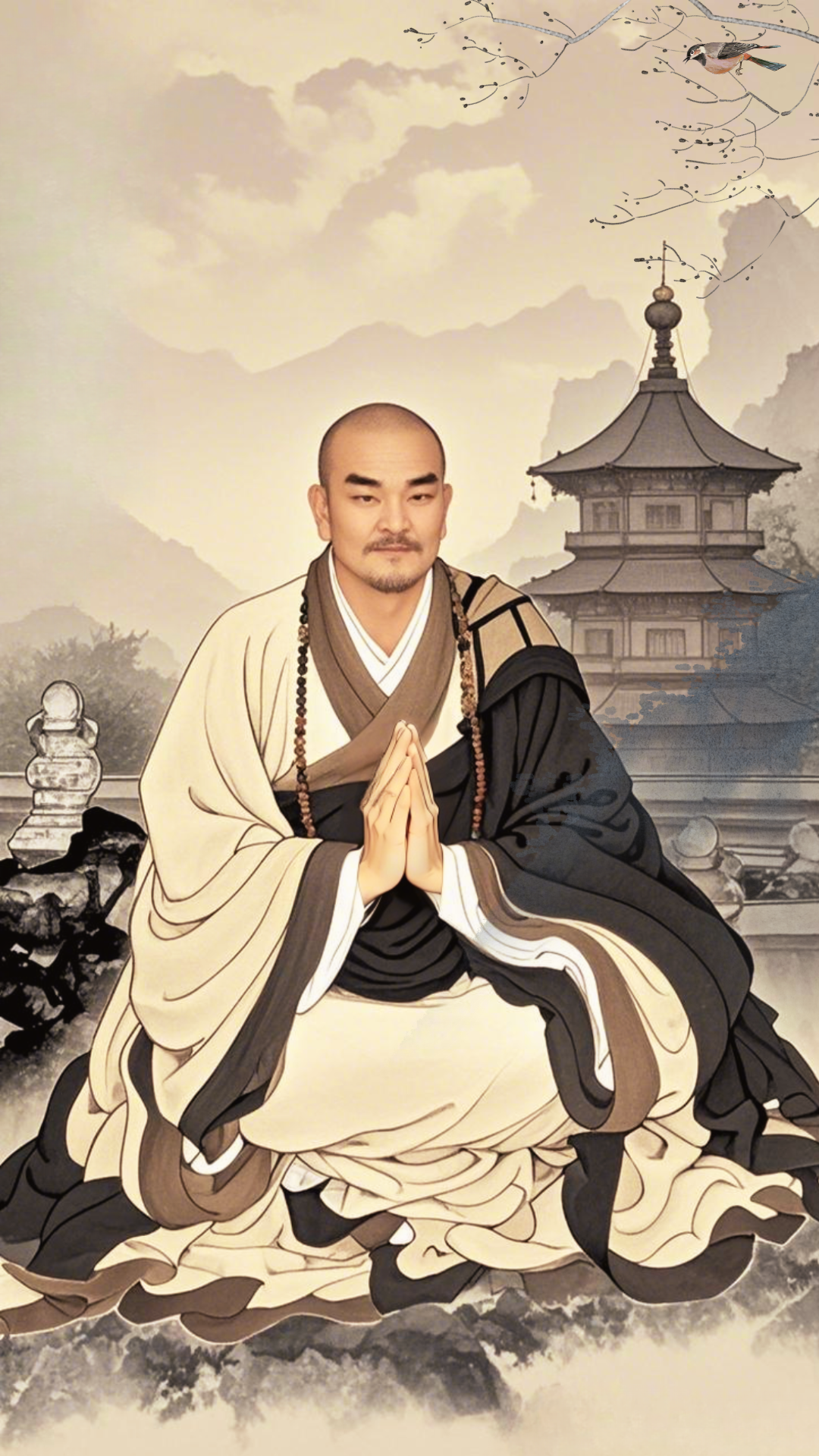
悟达国师是唐朝懿宗时的国师,在未显达时,曾在长安遇到一位生恶疮的僧人(迦诺迦尊者化身),疮口流脓流血,十分肮脏,且臭味熏人,令人作呕,人人皆不敢接近。老和尚脾气又很怪,动辄就骂人,所以更加没有人愿意敬佑他。
Master Wuda was the National Preceptor during the reign of Emperor Yizong of the Tang Dynasty. Before rising to prominence, he encountered a monk ( (an incarnation of Venerable Kāṇakya) in Chang’an who suffered from festering sores, oozing pus and blood. The monk was filthy, emitted a nauseating stench, and repelled everyone around him. His temper was also erratic, often cursing others, which made people even more unwilling to care for him.
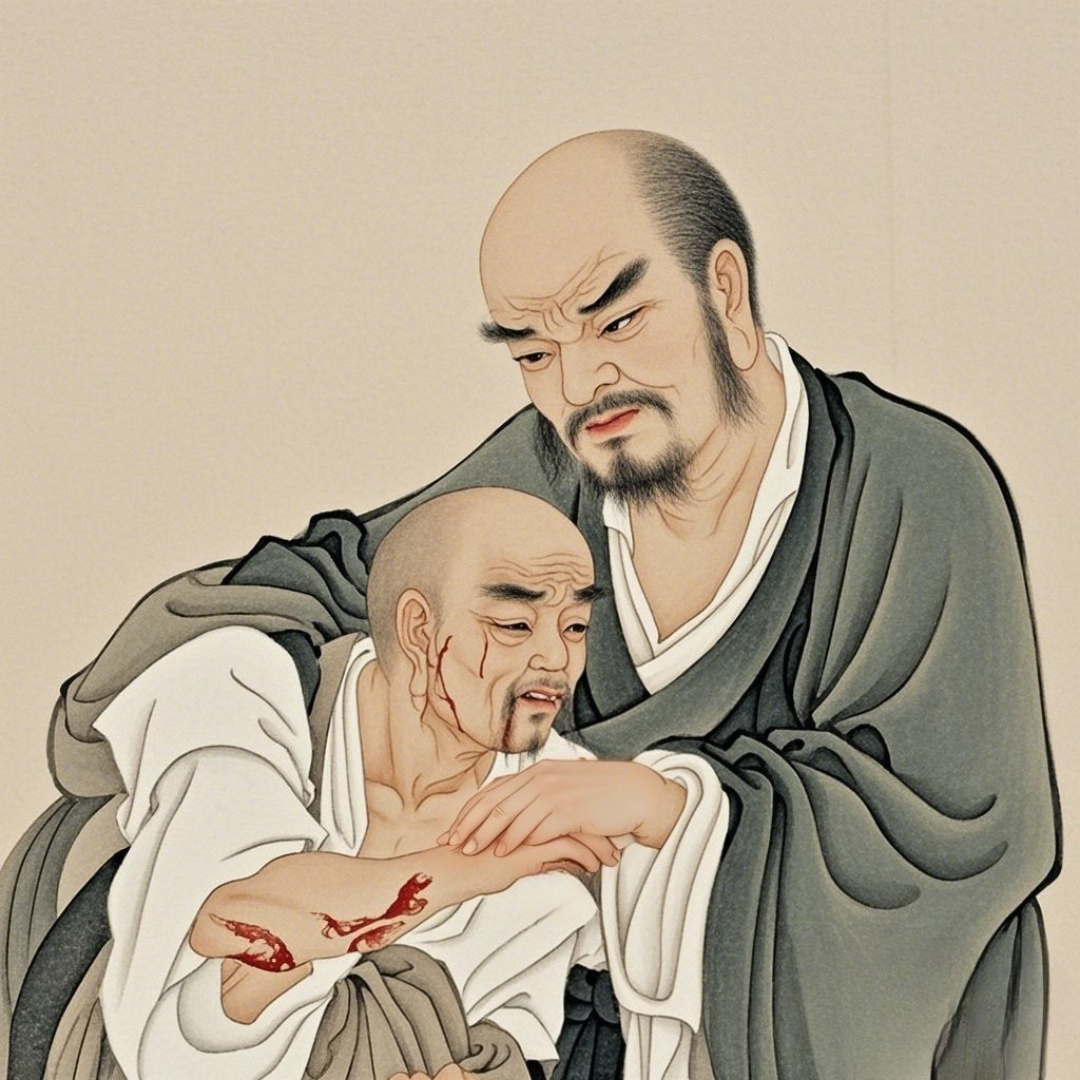
当时,悟达禅师住在他的隔寮,他说:“看护病人是慈悲心,是出家人的本分,我们要做。”于是天天去照顾老和尚,不嫌脏臭地服侍他,送饭洗疮。不知不觉,夏去秋来,病僧的恶疮在悟达禅师的照料下渐渐好了。
At that time, Master Wuda was living in a neighboring room. He said, "Caring for the sick is an act of compassion and a duty of monks. We must do it." Thus, he tended to the elderly monk daily, serving him meals and cleaning his wounds without disdain for the filth or stench. Unknowingly, as summer passed into autumn, the monk's festering sores gradually healed under Master Wuda's care.
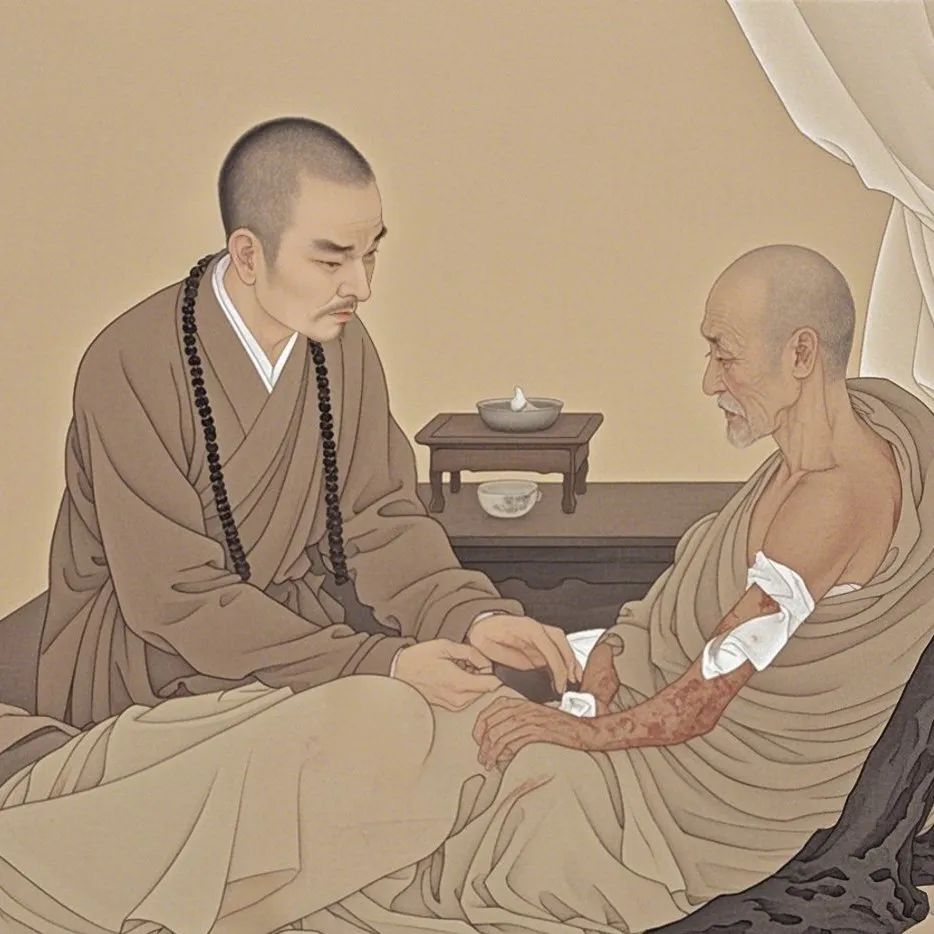
老和尚对悟达禅师说:“谢谢你的照顾,今后你如有难解之事,可以到西蜀彭州九陇山找我,山上有两棵大松树为标志,我就在那个地方。”就此别过。
The old monk said to Master Wuda,“Thank you for your care. If you ever face an unresolved difficulty, you can find me in Jiulong Mountain, Pengzhou, in Western Shu. Look for two large pine trees—they will mark the place where I will be.”With that, they parted ways.
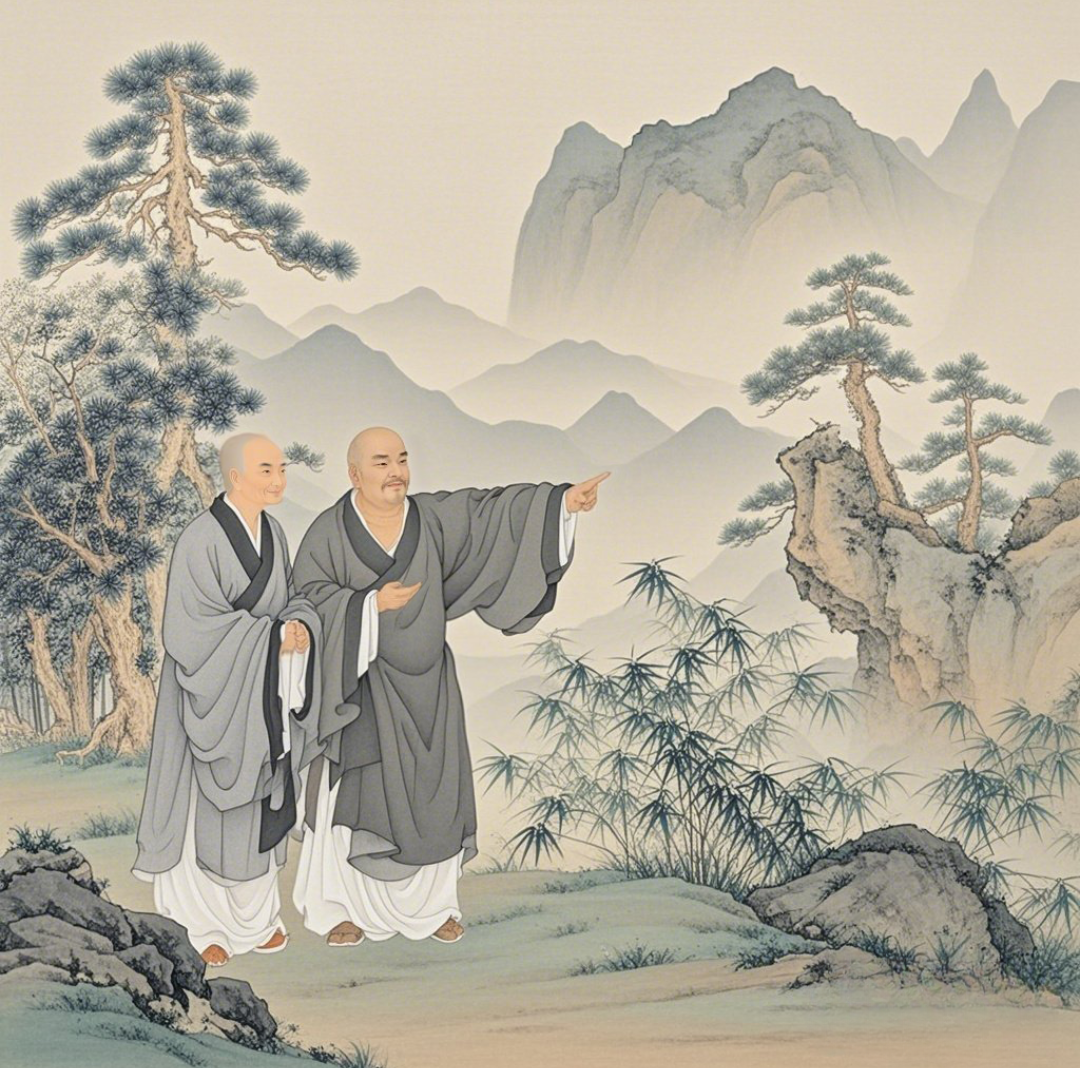
后来悟达禅师的名气越来越大,他的学问、智慧、戒律均为当时修行人所标榜,唐懿宗就尊封他为国师。他在长安居安寺讲经时,懿宗皇帝亲临法席,特赐沉水檀香的宝座。
As Master Wuda's reputation grew, his knowledge, wisdom, and adherence to discipline became exemplary among practitioners of his time. Emperor Yizong of Tang honored him as the National Preceptor. While he was preaching at Ju'an Temple in Chang'an, Emperor Yizong personally attended his lecture and bestowed upon him a precious sandalwood throne.
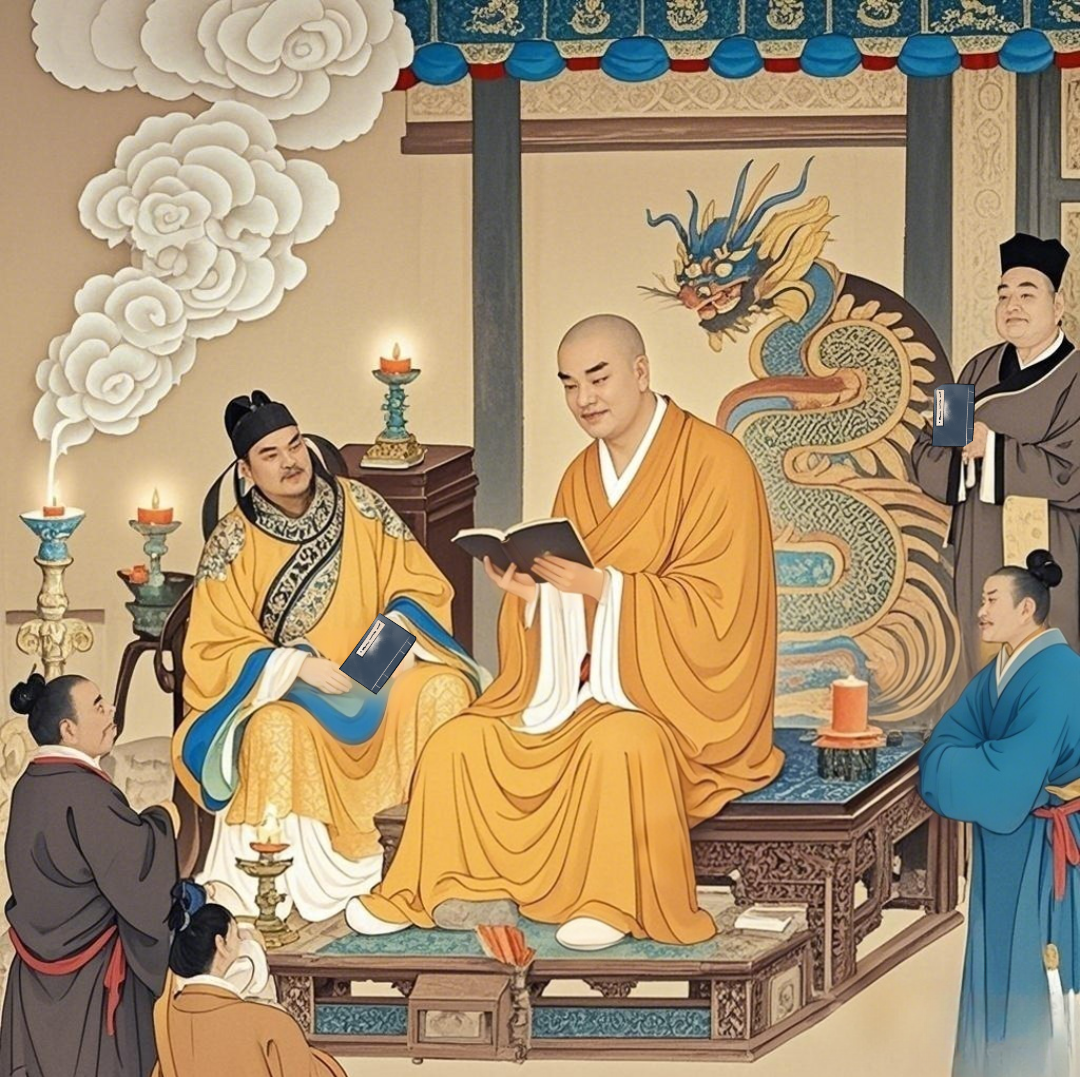
这时,他生起傲慢心,认为自己是高僧,不可一世。岂料妄想一起,护法神便离他而去;跟着他七世的冤亲债主,可找着复仇的机会了,在他膝盖打了一拳。从此膝盖上生起一个人面疮来,有眉、有眼、有口、有齿,每天要吃肉喝酒。如果不给酒肉,就闹腾他,使他巨痛难忍,苦不堪言,遍访名医,都束手无策!
At that moment, arrogance arose in his heart, and he saw himself as an unrivaled eminent monk. However, as soon as this delusion took hold, his guardian deities departed. Seizing the opportunity for revenge, a karmic creditor who had followed him for seven lifetimes struck his knee. From then on, a grotesque sore resembling a human face grew on his knee, complete with eyes, eyebrows, a mouth, and teeth. Every day, it craved meat and alcohol ; if denied, it would torment him with unbearable pain. Despite seeking out the best physicians, none could offer a cure.
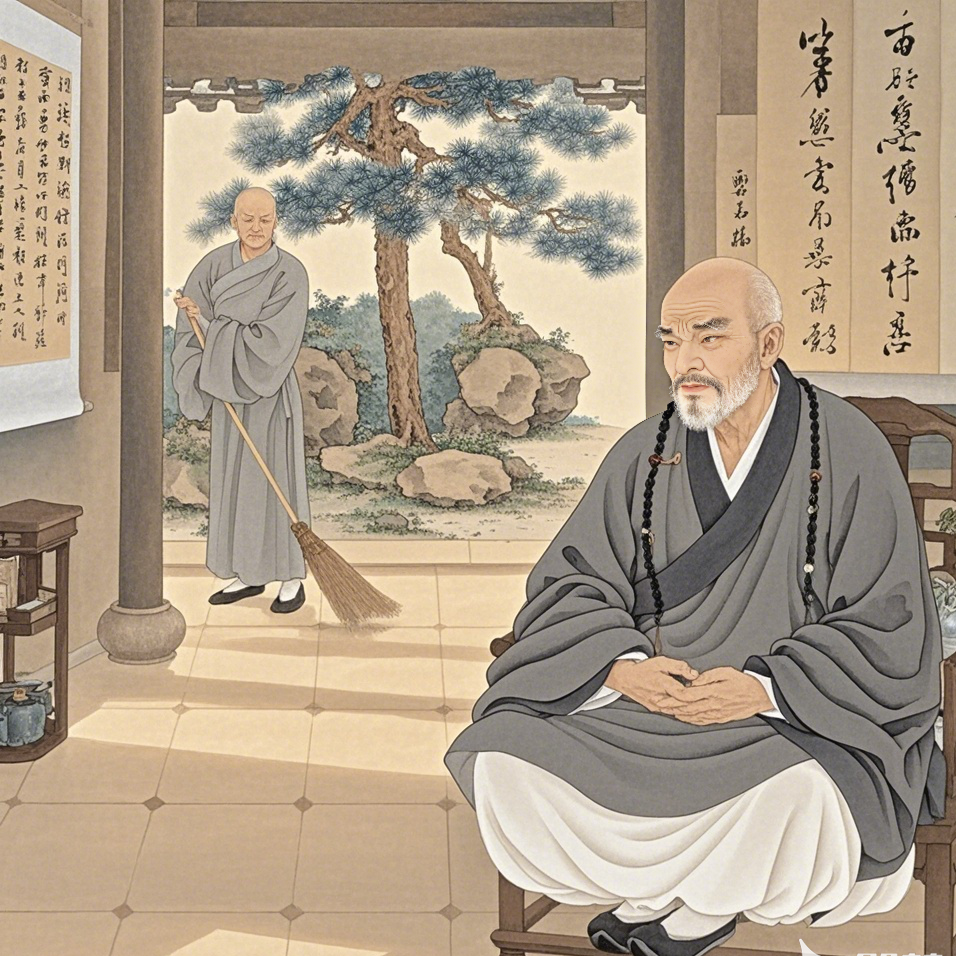
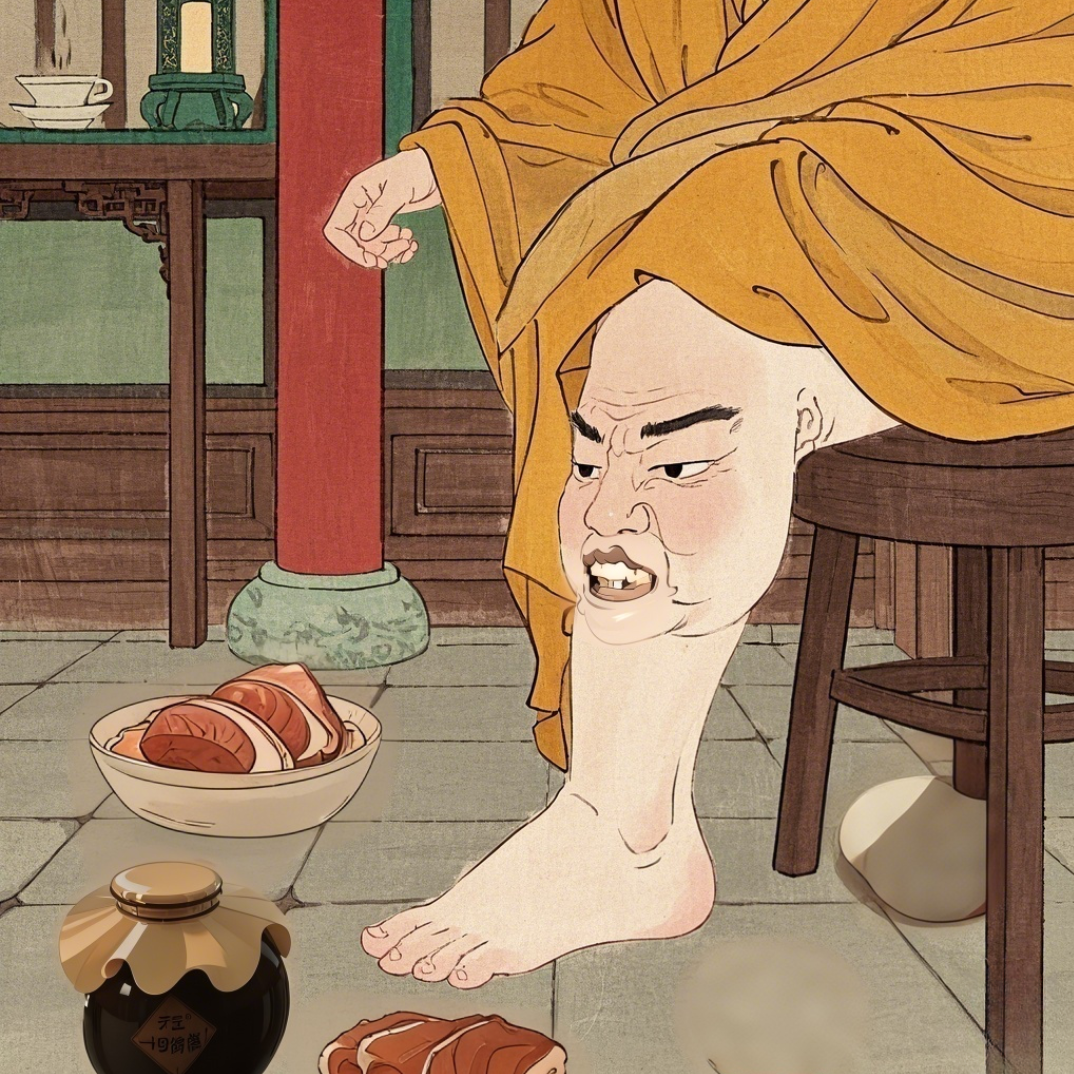
悟达国师身体痛苦,外面的闲话也不断而起:“国师他是口里吃素的,但是腿是吃荤的。”悟达国师承受不了这种身心痛苦,自己是一个修行人,腿上一天却要吃好多块肉。思来想去,猛然忆起多年前生恶疮僧人的临别之言,便往九陇山寻找那位僧人。
Master Wuda suffered immense physical pain, while rumors spread: “The Preceptor eats vegetarian food, but his leg craves meat.” Unable to endure the agony of both body and mind—being a monk yet needing to feed his leg with meat daily—he pondered deeply. Suddenly, he recalled the farewell words of the ailing monk from years ago and set off for Jiulong Mountain to find him.
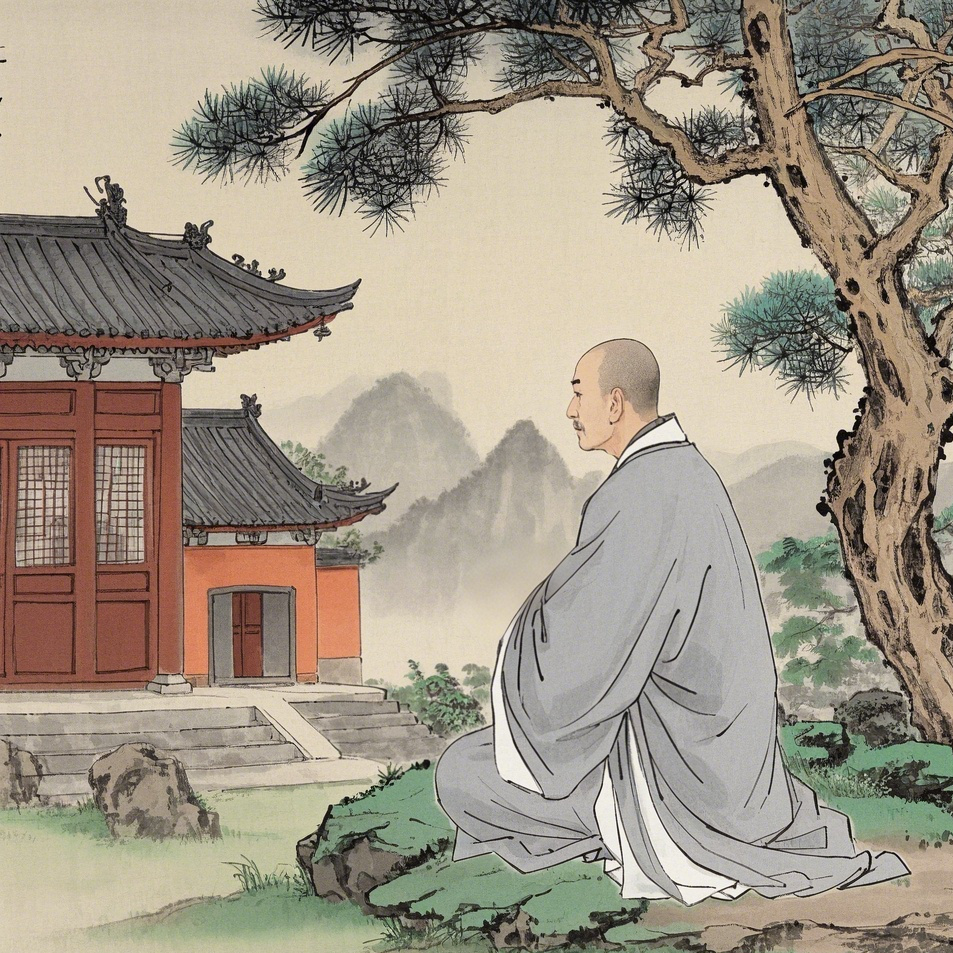
果然找到两棵并连的松树,高耸入云,而那僧人已经站在金碧辉煌的大殿门前等他,并殷勤地接待,留他住下。悟达国师就把所患的怪疾和痛苦相告,那僧人对他说:“不要紧的,我这儿山岩下有清泉,等到明日天明,你去用泉水洗濯就会痊愈的。”
Upon arrival, he indeed found two towering, intertwined pine trees reaching into the sky. There, standing before a magnificent golden hall, was the monk, who had been waiting for him. The monk warmly welcomed him and invited him to stay. Master Wuda recounted his strange illness and suffering. The monk reassured him, saying, “Do not worry. Beneath the mountain cliffs lies a clear spring. At dawn tomorrow, wash your sore with its water, and you will be cured.”
到了第二天清晨,等悟达国师来到清泉旁,正要掬水时,突然听见那人面疮竟然开口大叫说:“你且慢洗!你的知识广博,通达古今,但不知你是否读过西汉书上,袁盎与晁错的故事?”
悟达国师回答说:“曾经读过!”
The next morning, as Master Wuda approached the clear spring and was about to scoop up water, he suddenly heard the human-faced sore cry out, “Wait! You are knowledgeable and well-versed in history, but have you ever read the story of Yuan Ang and Chao Cuo from the Western Han records?”
Master Wuda replied, “Yes, I have read it.”
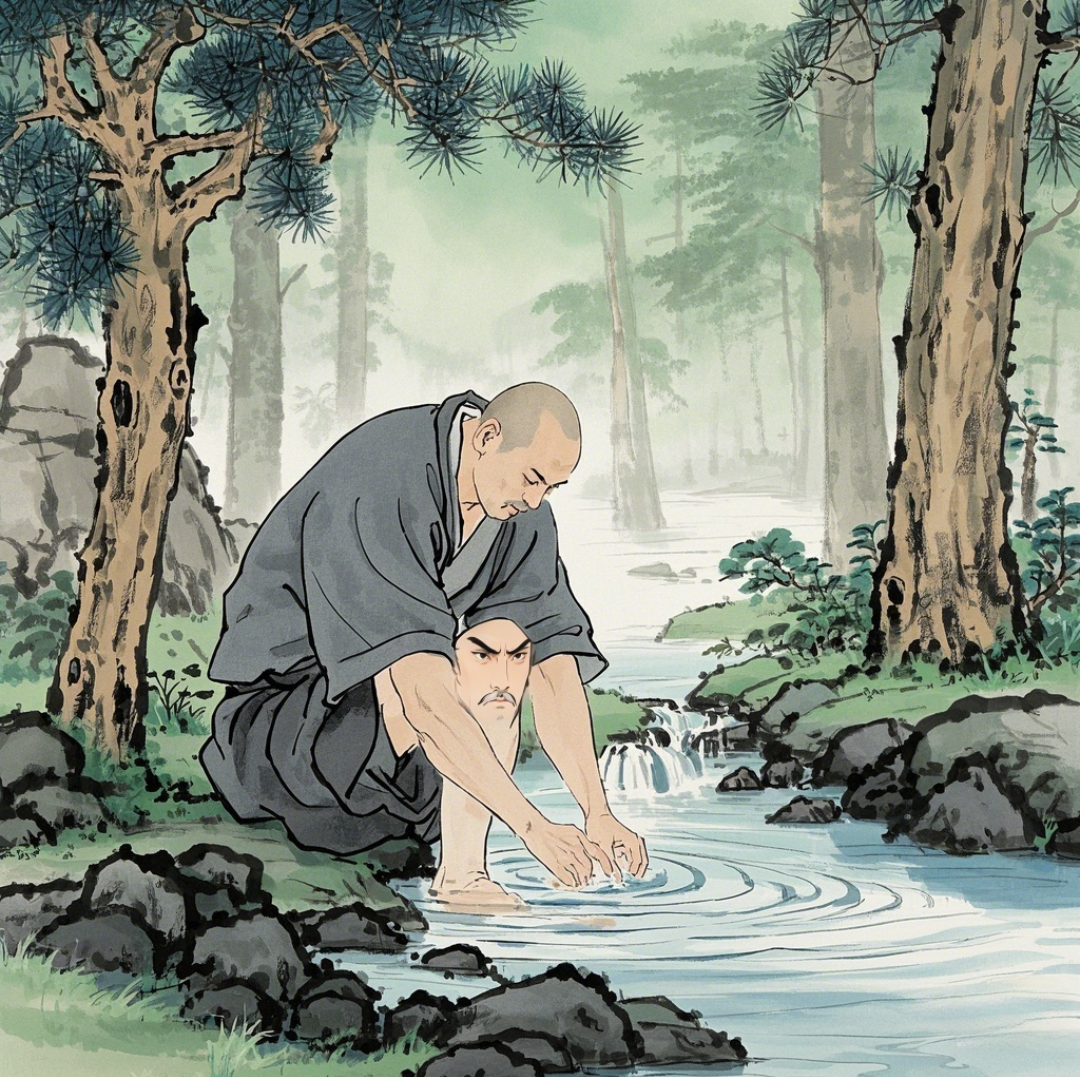
人面疮说:“你既然读过了,何以不知袁盎杀晁错的事!你的前世就是袁盎,而晁错就是我,当时就因为你向皇帝进言,害我在东山被腰斩,这个深仇大恨,我累世都在寻求报复的机会。但因为十世以来,你都是身为高僧,且奉持戒律严谨,使我没有报仇的机会,这次你因为受到皇上过分的宠遇,动了名利心,在德性上有所亏损,所以我能够靠近你来寻仇。现在既蒙迦诺迦尊者(化身为病僧)赐我三昧法水,令我解脱,我们的夙怨,也就到此告一段落了!”
The human-faced sore said: “Since you have read it, how do you not know about Yuan Ang’s role in Chao Cuo’s death? In your past life, you were Yuan Ang, and I was Chao Cuo. Because you advised the emperor against me, I was executed by waist-cutting at Dongshan. This deep hatred has driven me to seek revenge across lifetimes. However, for ten reincarnations, you lived as a high monk, strictly adhering to the precepts, leaving me no chance for revenge. This time, due to the emperor’s excessive favor, you developed a desire for fame and fortune, leading to a lapse in virtue. That weakness allowed me to approach and take my revenge. Now, thanks to the Samadhi Water bestowed by Venerable Jānuka (who appeared as the ailing monk), I am granted liberation. With that, our karmic feud ends here.”
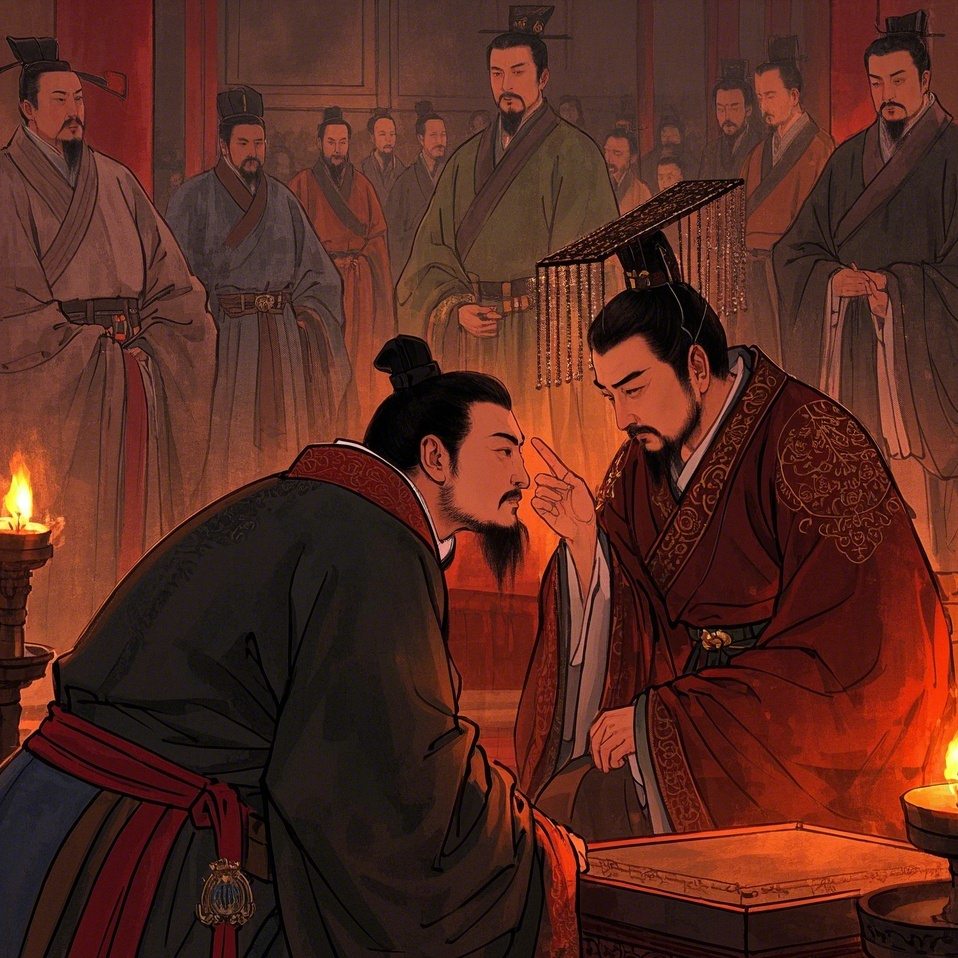
听了人面疮这番话,悟达国师大惊之余,赶紧手掬泉水继续洗濯,痛彻骨髓,一时昏厥,待到苏醒,人面疮已经平复。
Shocked by these words, Master Wuda quickly scooped up the spring water and continued washing the sore. The pain pierced to his bones, causing him to faint. When he regained consciousness, the human-faced sore had completely disappeared.
一朝恩怨,十世追讨。被腰斩的晁错,在历史上的那个时间点死了,但是他的心识没有死,始终在寻找报仇的机缘,没想到“袁盎”竟然接连十世都做高僧。
A single grudge, avenged across ten lifetimes. Though Chao Cuo was executed by being cut in half at that moment in history, his consciousness did not perish. He continuously sought an opportunity for revenge, only to find that "Yuan Ang" had been reborn as a high monk for ten consecutive lifetimes.
经历这样一番因果的砥砺,病愈后的悟达国师就留在九陇山修行,在双松圣迹起造一寺,名为招提寺。
After experiencing this profound karmic trial, the healed Master Wuda remained in Jiulong Mountain to cultivate. At the site of the Twin Pines, he built a temple named Zhaoti Temple.
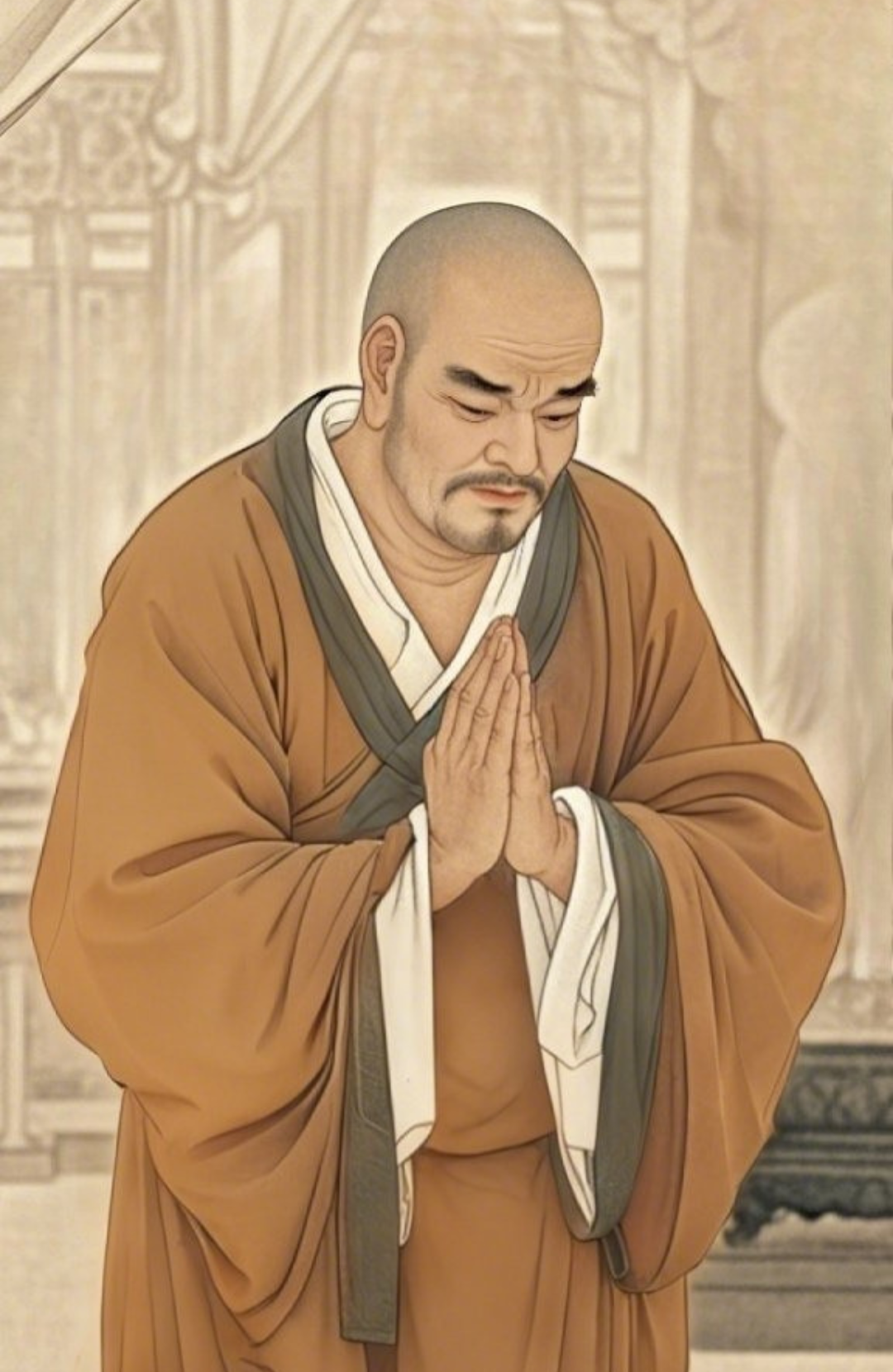
他以自己的亲身经历为缘起,勇猛精进地忏悔宿世罪障,特记其事,作为忏法,朝夕礼诵,使世人咸知先贤事迹之端详,汉地佛教广为流传的《慈悲三昧水忏》由此传播天下。
Using his own experience as a lesson, he diligently repented for his past karmic offenses with unwavering devotion. He documented the events as a repentance text, reciting it daily to reflect on the deeds of past sages. Through this, The Compassionate Samadhi Water Repentance, a widely revered Buddhist scripture in China, was spread throughout the land.
这个故事,在历史上也有记载的,是史实。因果报应,真实不虚。纵使百千劫,所作业不亡,因缘会遇时,果报还自受。
This story is documented in history and is a true account. Karma and retribution are real and unerring. Even after hundreds or thousands of lifetimes, the deeds one has committed do not vanish. When conditions align, one must inevitably face the consequences.
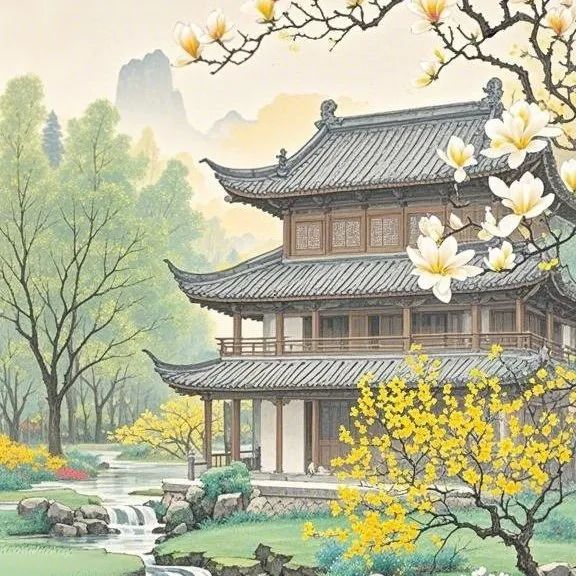
文章出處:
《宋高僧传·唐彭州丹景山知玄传》
Source of the article: Biographies of Eminent Monks in the Song Dynasty: the Biography of Zhixuan from Danjing Mountain in Pengzhou, Tang Dynasty.
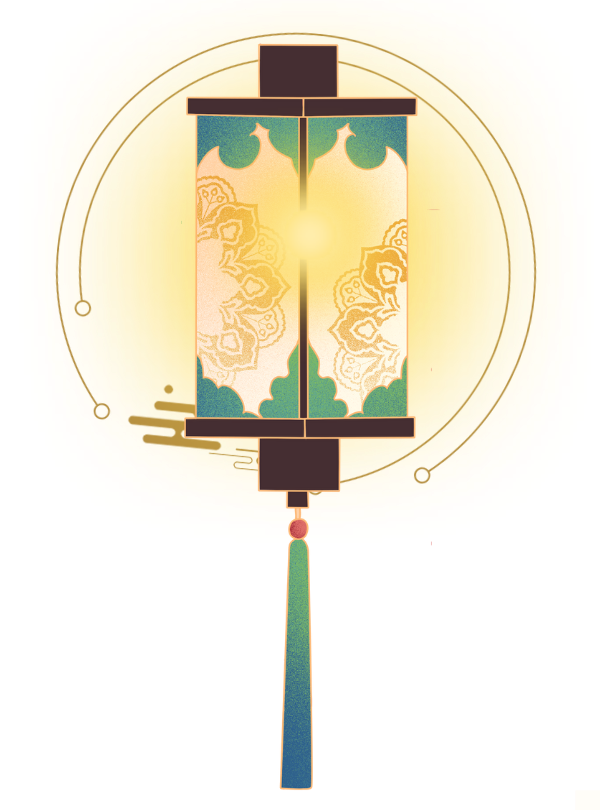
本文由「青岛观音寺」微信平台原创
转载请注明出处
公众号:qingdaoguanyinsi

一篇文章可点亮无数心灯,青岛观音寺公众号特在此征集引人向善的“精神食粮”,您可讲述人生经历、学佛缘起、修行感悟和改变等。
投稿请发邮件,邮件标注“征文”字样,文尾标注作者姓名、微信号,静候您的文章布施!邮箱:
qingdaoguanyinsi@163.com


